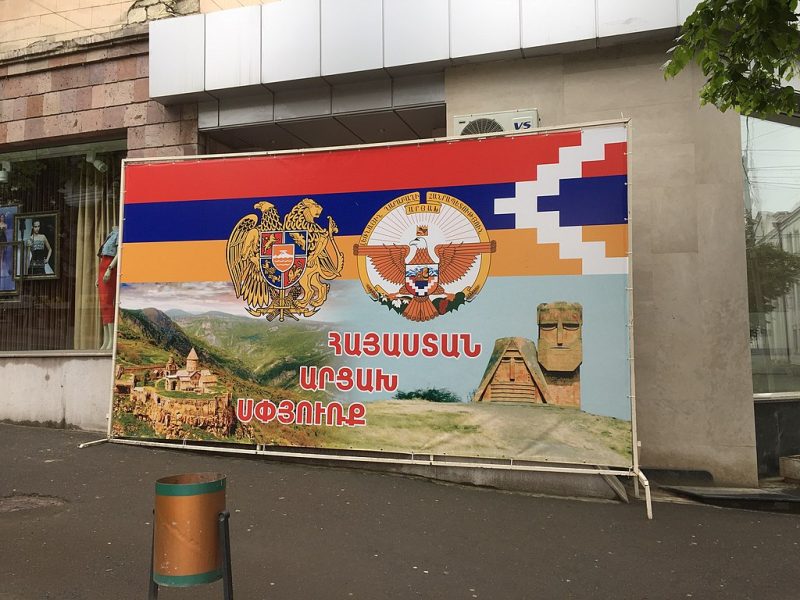The situation in Nagorno-Karabakh is worsening quickly once again. International actors, in particular the E.U., have attempted to reach an agreement between Armenia and Azerbaijan, who have been in a low- to high-intensity conflict over the region for years. Indeed, a day after Armenia re-iterated its need for mediation on July 14th, E.U. council president Charles Michel convened with Armenian premier Nikol Pashinyan and Azerbaijani president Ilham Aliyev for a new round of high-level negotiations. Since discussions between Pashinyan and Aliyev resumed in Brussels on May 14th, the E.U. negotiators’ goal has been to keep a firm grip on the two sides, despite continually incendiary rhetoric and the absence of real progress. Unfortunately, this goal has been continually thwarted as Azerbaijan batters Nagorno-Karabakh’s peaceful villages.
The European Union has been the driving force behind the multilateral diplomatic efforts. President Michel claimed that the roundtable was the latest in a series of intensive and productive meetings involving Armenian and Azerbaijani leaders, vice-premiers, and foreign ministers since the beginning of May, in Brussels, Chișinău, Washington, Moscow, and on the bilateral border. E.U. negotiators are going through one of the most comprehensive and vigorous phases of negotiations between Armenia and Azerbaijan, Michel stated.
However, Michel acknowledged that the meeting took place in the context of a worrying increase in tensions on the ground, after Azerbaijani foreign minister Jeyhun Bayramov accused Armenia of failing to abide by “many provisions” of the 2020 ceasefire and Russia, the countries’ traditional mediator, of failing to ensure the “full implementation of the declaration within the scope of its obligations.”
A frozen conflict has been going on in this area of the South Caucasus since 1992, with recurring outbreaks of armed violence. The most serious in recent years broke out in October 2020: nearly 7,000 civilians died in six weeks of conflict before the ceasefire Bayramov referred to forced Armenia to cede large portions of Nagorno-Karabakh to Azerbaijan. That is why the question of territorial integrity is among the most complex issues underlying the conflict.
Of particular concern has been the Christian enclave of Nagorno-Karabakh, in southwestern Muslim-majority Azerbaijan – and more specifically, the “clearly unsustainable” status in the area around the Lachin Corridor. Food supplies in warehouses are now down to the bare minimum, with empty stores and long lines for food, and medicines and oxygen in hospitals are in similarly short supply. Meanwhile, Azerbaijan has been preventing the most seriously ill from transferring to Armenia, causing unnecessary deaths and increasing mortality rates, especially among the weaker segments of the population.
President Michel has stated an intention to convene a new high-level meeting in Brussels “after the summer” and a new five-way meeting – “with the participation also of the leaders of France and Germany” – on the sidelines of the European Political Community meeting. As Armenia asked, the U.N. should also intervene with all available instruments to guarantee that the human rights of those living in the affected region are respected and peace is restored. The international community cannot allow either its words or the continuing violence to sink into yet another silence.
- Kenya Debates Sending Police To Curb Haiti’s Growing Gang Problem - December 22, 2023
- Colombia Named Deadliest Country For Environmentalists - December 3, 2023
- The Damage Of Cultural Heritage In Ukraine - October 17, 2023


